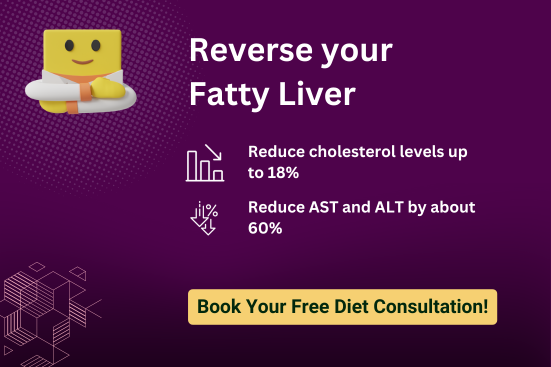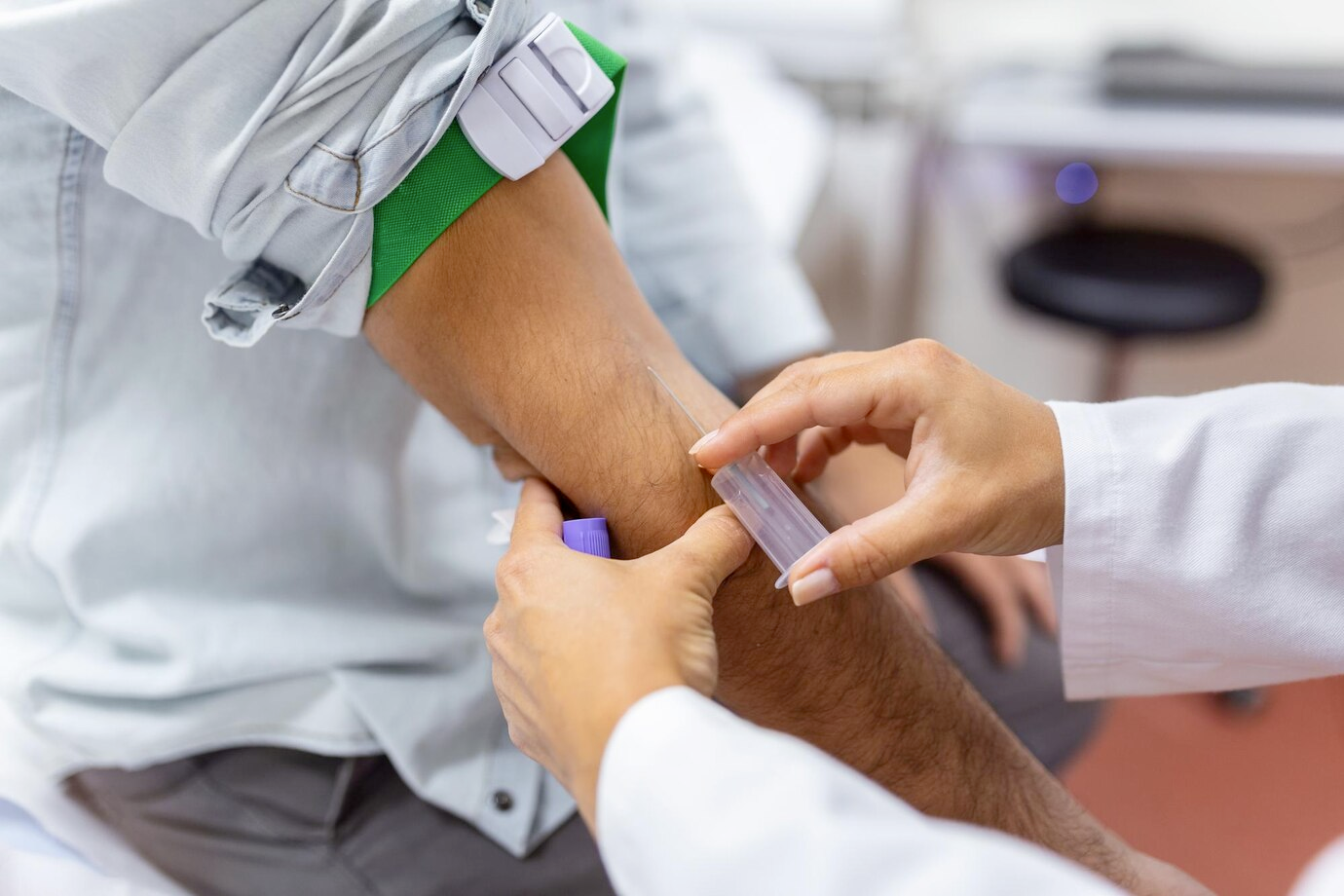A Dietary Guide to Gifting Your Fatty Liver a Long Life

The Art of Liver Care: 13 Thoughtful Tips for Optimal Liver Health
27 Feb 2024
Your liver, a resilient organ, is a silent hero in your body. It has the important job of filtering out toxins; but, like any hero, it too needs some care and attention to stay in top form. With our modern lifestyles filled with stress and unhealthy diets, our livers often bear the brunt, leading to conditions like fatty liver and liver damage. Whether you already have a liver condition or are simply interested in maintaining good health, understanding the basics of liver care is essential.
In this blog, we’ll delve into some precise tips to nourish your liver the right way. From diet choices to physical activity, from hygiene practices to mindful monitoring of medications – we’ll navigate through the maze of liver care and liver monitoring techniques. As we explore these recommendations, remember: every small step counts towards achieving that healthier liver goal. Let’s embark on this journey towards optimal liver health.
Tip-the-Scales: Balancing Weight for Liver Health
Carrying around extra kilos isn’t just about the strain on your knees or the constant panting after climbing stairs. It can also escalate into fatty liver disease, a serious condition where fat accumulates in your liver cells. Therefore, maintaining a healthy weight with a BMI between 18-25 becomes paramount. It’s not just about looking fit, but also about keeping your liver fit!
Treadmill or Trail: Exercise Your Way to Liver Health
Did you know that a daily dose of physical activity can do wonders for your liver? Regular exercise, like a brisk walk or cycling for 30 minutes, five days a week, can help prevent fatty liver disease. Exercise helps burn triglycerides for fuel and can also reduce liver fat.
Eat Right to Feel Bright: Diet and Liver Health
What goes on your plate directly impacts your liver health. A balanced diet loaded with fruits, vegetables and lean protein offers essential nutrients without overburdening the liver with fat. It’s time to bid adieu to refined carbs, sugars and saturated fats that cause excessive liver fat accumulation.
Sip Responsibly: Alcohol and Liver Damage

A glass of wine or a pint of beer may seem harmless enough but consuming alcohol regularly or in large quantities can lead to severe liver damage. So, it’s best to limit alcohol to ensure you’re not overworking your liver.
Cleanliness is Next to Healthiness: Preventing Infections
One of the liver’s primary roles is to fight infections, but some can hit it hard. Hepatitis B and C, in particular, can cause chronic liver disease. Regular hand washing, especially before meals, using protection during sex, and avoiding exposure to toxins in cleaning agents and pesticides become imperative.
Prick for Protection: Vaccination and Liver Health
Vaccination is your shield against hepatitis A and B, viruses that can cause liver inflammation. Recent developments also hint at a potential vaccine for hepatitis C. Getting vaccinated and keeping a close watch on these developments are critical steps towards safeguarding your liver health.
Medicines and Monitoring: Don’t Overload Your Liver
Whether it’s an over-the-counter cold remedy or a prescription painkiller, your liver processes all the medications you consume. But too much of these can potentially harm your liver. Keep an eye on any side effects or interactions of medications you take regularly to ensure they’re not conspiring against your liver.
Kick Bad Habits: Smoking and Liver Health
Cigarette smoke contains a cocktail of toxins that get absorbed into your blood. Your liver then does the hefty job of processing these toxins, which can lead to liver damage over time. So, if you’ve been thinking about quitting smoking, here’s another compelling reason to do so—for the sake of your liver!
Hygiene Habits: Prevention is Better than Cure
Preventing liver diseases can often be as simple as following basic hygiene practices. Something as mundane as washing hands frequently, particularly before meals, can protect you from harmful infections that could compromise your liver health. Hepatitis A and E, for instance, are often contracted through ingestion of contaminated food or water. Being mindful of small yet significant habits can benefit you in unimaginable ways.
A Barrier That Protects: Safe Sex for a Healthy Liver
Safe sexual practices can prevent the spread of Hepatitis B and C, diseases that directly attack the liver. Using protection during sex can drastically reduce the risk of these sexually transmitted infections, safeguarding your liver health in the process.
Spotless Spaces, Healthy Bodies: Avoiding Toxic Exposure
Avoiding exposure to toxins is another crucial factor for liver health. Many cleaning agents and pesticides contain harsh chemicals that can be damaging to the liver. Opting for natural, eco-friendly cleaning products not only benefits the environment but also reduces the toxic load on your liver.
Personal Boundaries: The Case for Separate Hygiene Items
Sharing personal hygiene items like razors, toothbrushes or nail clippers can sometimes lead to accidental transmission of bloodborne diseases, including Hepatitis B and C. Keeping personal hygiene items exclusive to each household member is a simple yet effective step towards better liver health.
Stay Clear of Illicit Drugs: Your Liver’s Plea
Illicit drugs can cause significant damage to your liver over time. Whether injected, swallowed or inhaled, they all end up passing through your liver, causing it to work extra hard to filter them out. Stay clear of these harmful substances and say yes to a happy liver.
In the journey of maintaining optimum health, caring for your liver is an essential chapter. After all, this workhorse of an organ is responsible for myriad functions that keep our bodies ticking along smoothly. From warding off fatty liver to preventing potential liver damage, the 13 tips shared in the blog all contribute towards achieving this goal. However, the most significant takeaway is that the path towards liver health isn’t complicated, it’s about making mindful choices, knowing your body and acting responsibly.
At TatvaCare, we understand that each individual’s health journey is unique. Our diverse range of services is designed with this in mind, providing a personalised roadmap for you to follow. Whether it’s to learn more about liver monitoring or to seek advice on enhancing liver health, we’re here to support you in every step of your journey. Remember, a healthy liver means a healthier you. We’re ready to guide you towards a healthier tomorrow.

FAQs
Q. How do antioxidants contribute to liver health?
A: Antioxidants play a significant role in maintaining a healthy liver. They neutralise harmful free radicals, reducing oxidative stress which can damage liver cells. Including antioxidant-rich foods like berries, dark chocolate and green tea in your diet can support liver health.
Q. Do genetics influence liver health?
A: Yes, genetics can significantly affect your liver health. Certain genetic conditions such as Hemochromatosis or Wilson’s disease can lead to an accumulation of harmful substances in the liver. However, lifestyle choices can often outweigh genetic factors, so a balanced diet and regular exercise can help maintain a healthy liver.
Q. Does stress impact the liver?
A: Elevated stress levels over a prolonged period can indeed affect your liver health. Chronic stress may lead to inflammation and cause damage to your liver cells. Incorporating relaxation techniques like yoga, meditation or deep breathing exercises in your daily routine can benefit your overall health, including your liver.
Q. Can over-the-counter medications harm my liver?
A: While over-the-counter medications are generally safe when used correctly, excessive or prolonged use can potentially harm the liver. It’s vital to follow the recommended dosage and consult your doctor if you need to use these medicines for an extended period.
Q. How does obesity affect the liver?
A: Obesity increases the risk of developing non-alcoholic fatty liver disease (NAFLD), where fat builds up in the liver cells. This condition can lead to inflammation and scarring (cirrhosis) over time. Maintaining a healthy weight through diet and exercise plays a crucial role in preventing fatty liver disease.

Medically reviewed by
Dr. Krunal Chaudhari 
MBBS, MD
Recent Blog
- CDSS – Revolutionising Diagnosis with AI-Powered Clinical Decision Support System
- Handwritten to Digital in Seconds: SmartSync Converts Prescriptions Instantly
- Voice Rx by TatvaPractice: A Smarter Way to Digitise Prescriptions
- PCOS Facts vs. Myths: Get the Right Information
- The PCOS-Insulin Resistance Connection: Unlocking Solutions for Better Health
Archives
Categories
- Asthma (20)
- Diabetes (15)
- Fatty Liver (20)
- High Blood Pressure (2)
- High cholesterol (2)
- Hypertension (2)
- Insulin Resistance (1)
- Obesity (8)
- PCOS (6)
- TatvaPractice (11)
Let’s Connect
Quick contact




